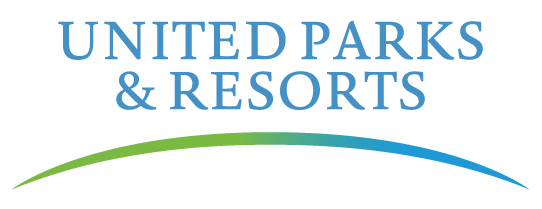Orlando, Fla. (May 16, 2018) – SeaWorld Entertainment, Inc. (NYSE: SEAS) and the National Fish and Wildlife Foundation (NFWF) today announced an additional commitment of $1.5 million over three years from SeaWorld to the Killer Whale Research and Conservation Program (KWRCP).
The KWRCP is focused on three strategies: increasing prey availability; improving habitat quality; and strengthening management through crucial research. The program is dedicated primarily to providing support to aid in the recovery of the endangered Southern Resident killer whale population found in the coastal waters of Washington State and surrounding areas, known as the Salish Sea.
SeaWorld’s prior investment of $1.5 million in the KWRCP, starting in 2015, has helped generate more than $5.1 million of total conservation impact, including investments from program partners Shell Oil Company, the U.S. Fish and Wildlife Service, and the National Oceanic and Atmospheric Administration, in addition to matching funds from grantees. The renewal of this public-private partnership is part of SeaWorld's $10 million pledge to fund research and conservation for killer whales in the wild—the largest private commitment of its kind.
“Only through partnerships with conservation-minded public and private organizations can we successfully reverse the decline of this population,” said Jeff Trandahl, executive director and CEO, NFWF. “We are pleased with what we have accomplished in just three short years and this renewed commitment from SeaWorld will enable us to continue our work to reduce threats and protect the habitat of this majestic mammal.”
Noteworthy projects funded over the past three years include:
• Vancouver Aquarium Marine Science Centre’s use of drones to compare health, nutrition and pregnancy differences between the healthier Northern population and the endangered Southern Resident killer whale population;
• Restore America’s Estuaries’ work to increase killer whale prey availability by creating a juvenile rearing habitat for salmon in the Upper Skagit River;
• National Marine Fisheries Service (NMFS) Northwest Fisheries Science Center’s research on response of killer whale communication and feeding behavior in response to vessel traffic and noise.
“The incredible growth of this important program over the past three years could not have been possible without the invested interests of other private organizations, like Shell, and the dedication of NFWF to advance the understanding and conservation of killer whales,” said Judy St. Leger, vice president for research and science, SeaWorld Entertainment, Inc. “Coordinated efforts like this are critical to understanding why the endangered Southern Resident population of killer whales in the Salish Sea continues to decline and how strategic investments can aid recovery.”
"NOAA appreciates SeaWorld and NFWF's support of conservation and research efforts on killer whales, with an emphasis on one of our Species in the Spotlight - the endangered Southern Resident killer whale," said Donna Wieting, director of NOAA Fisheries Office of Protected Resources. "This important investment is helping to address critical data needs to help us recover this iconic population."
Deputy director of Long Live the Kings, Michael Schmidt, who coordinates the Salish Sea Marine Survival Project—a 60-entity, collaborative cross-boundary research effort on salmon—added, “The funding we received from the Killer Whale Research and Conservation Program has been critical to support our research of factors limiting salmon productivity in the Salish Sea marine environment. The insights we are gaining from this research will inform a managers roundtable on how to increase prey availability for Southern Resident killer whales and will also inform the Governor’s new Orca Task Force to help guide managers towards the most effective recovery actions."
“We appreciate the continued support for research to better understand the risks to Southern Residents,” said Kevin Werner, director of NOAA Fisheries' Northwest Fisheries Science Center, which leads studies on the endangered population. “The insight we gain from this research can help guide NOAA Fisheries and our partners towards the most effective recovery actions."
###
About SeaWorld Entertainment, Inc.
SeaWorld Parks & Entertainment™ is a leading theme park and entertainment company providing experiences that matter and inspiring guests to protect animals and the wild wonders of our world. The company is one of the world’s foremost zoological organizations and a global leader in animal welfare, behavioral training, husbandry and veterinary care. The company collectively cares for what it believes is one of the largest zoological collections in the world and has helped lead advances in the care of animals. The company also rescues and rehabilitates marine and terrestrial animals that are ill, injured, orphaned or abandoned, with the goal of returning them to the wild. The SeaWorld® rescue team has helped more than 31,000 animals in need over the last 50 years.
About the National Fish and Wildlife Foundation
Chartered by Congress in 1984, the National Fish and Wildlife Foundation (NFWF) protects and restores the nation's fish, wildlife, plants and habitats. Working with federal, corporate and individual partners, NFWF has funded more than 4,500 organizations and committed more than $4.8 billion to conservation projects. Learn more at www.nfwf.org.
